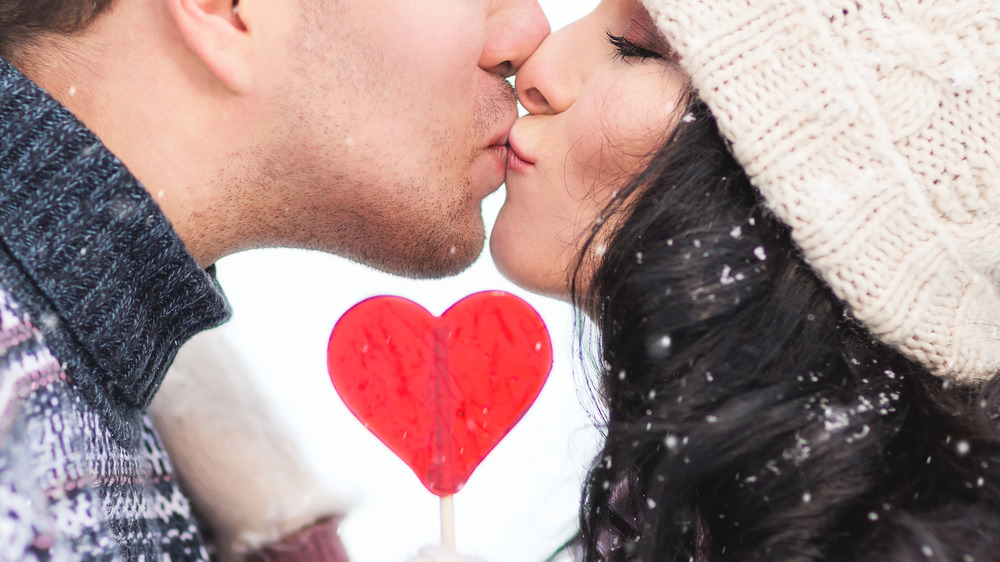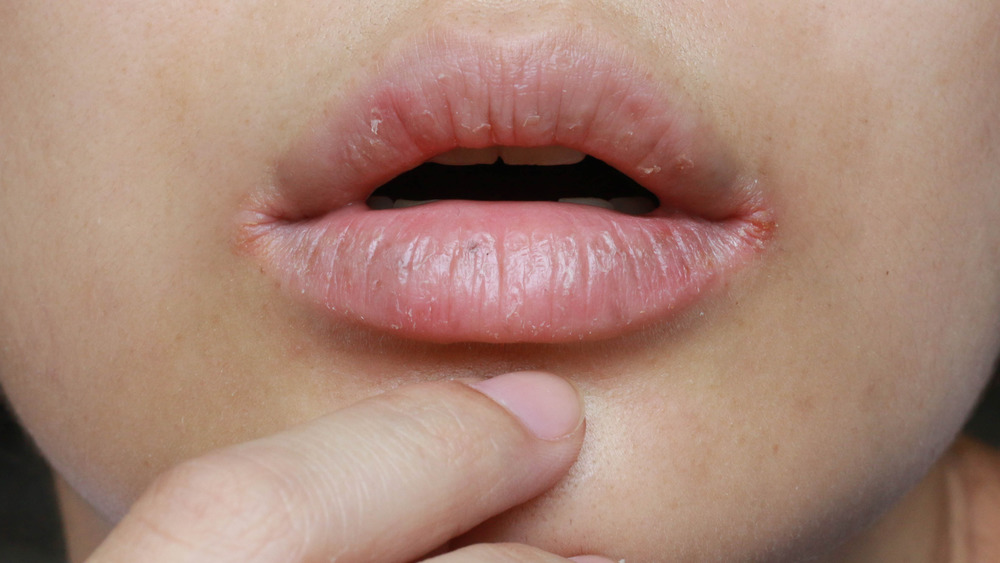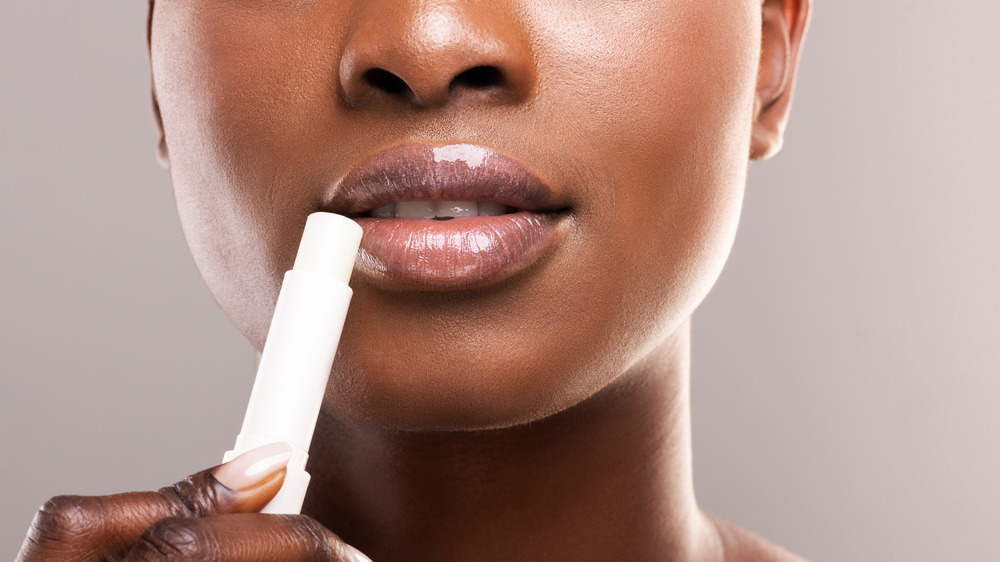The Damaging Effects Kissing Too Much Has On Your Lips
In nearly every romantic comedy, if the first date goes well, in those final moments on the doorstep, the anticipation builds, the couple leans in closer, and the excitement is palpable until finally, they seal the date with that perfect kiss. A magic current radiates throughout their bodies and they live happily ever after.
Our lips have some of the thinnest layers of skin found throughout the entire body and are packed with numerous sensory neurons, so it's no surprise at how stimulating and arousing a kiss can be (via Scientific American). Time and research has demonstrated that there are several health benefits to kissing, such as stress reduction, the release of "feel-good" hormones (oxytocin and dopamine), a workout for your facial muscles, and many others (via mindbodygreen).
However, there is an ancient Greek saying which roughly translates to, "Where you hear of a lot of cherries, bring a small basket," and the same rings true when it comes to kissing. While the benefits of kissing are touted, there are also a few damaging effects to be aware of.
The dark side of kissing
At some point, we've all experienced dry, chapped lips. Since the lips consist of fewer layers of skin, they are more susceptible to both physical and biological injury. Everyone's saliva contains digestive enzymes like amylase and maltase and when saliva comes in prolonged contact with the lips, it can lead to skin breakdown and degradation, thus leaving your pout dry, cracked, and begging for some TLC (via Healthline).
That scruffy beard you were initially drawn to could also be the reason your lips are left red, chapped, and achy after a make-out session. Friction between two pairs of lips is enough to cause irritation, but add coarse facial hair to the mix and you're guaranteed to do some damage to your lips.
While saliva plays a role in irritating your lips, it also promotes the spread of numerous microorganisms, bacteria, and viruses. Herpes simplex 1, HSV-1, is the virus responsible for those painful, large blisters on the lips, commonly referred to as cold sores. What's most problematic is that the virus can spread even if your partner doesn't actively have a cold sore at the time.
Affectionately referred to as "the kissing disease," the Epstein-Barr virus (EBV) is responsible for mononucleosis and can be spread through saliva as well (via Cleveland Clinic). It is not surprising that this disease is most common amongst teenagers and young adults (via Center for Disease Control and Prevention).
Decrease your chances of harmful effects from smooching a ton
Don't be turned off to kissing, however — there are a number of preventative measures that can be taken to decrease some of these less-than-ideal effects. First, try to keep your lips moist as much as possible and stay hydrated. Good routine oral hygiene is highly recommended to decrease unhealthy bacteria and organisms living in the mouth. Using mouthwash before an anticipated smooch may also be a good idea and your partner will likely thank you. No one likes to kiss with bad breath! It is also critical to avoid kissing when you are feeling sick to stop the spread of disease and illness.
Finally, remember to breathe, lean in, and let the magic overtake you.



